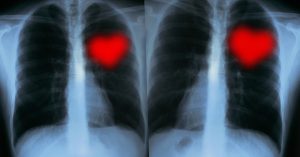Understanding the Signs of Congestive Heart Failure
• Wheezing or shortness of breath
• Swelling, especially in the legs, feet, or ankles
• Fatigue or lack of energy
• Struggling to breathe when lying down
• Coughing up phlegm
• Significant weight gain
• Stomach swelling
• Lack of focus or concentration on tasks
• Inability or struggle to exercise
If you are experiencing any of the above symptoms, schedule an appointment with a cardiologist in Tampa, FL. For severe chest pain, fainting spells, or a rapid or irregular heartbeat, seek immediate medical attention.
An experienced cardiologist in Tampa, FL, will review a patient’s medical history, assess their symptoms, and perform tests to assess their heart condition. Some common forms of testing include:
• Physical examinations
• Blood tests
• Stress testing
• Transthoracic echocardiography (TTE) testing
• Chest X-rays
From accurate diagnosis to effective treatment, a cardiologist can help you detect signs related to heart failure, determine the underlying cause of these symptoms, and develop a comprehensive treatment plan to help prevent or reduce the signs of heart failure.
The content, views, and opinions communicated on this website do not represent the views of Ascent Cardiology Group. Reliance on any information provided by this website is solely at your own risk. Although this website contains links to other medical websites, this is strictly for informational purposes. Ascent Cardiology Group is not responsible nor do they approve of the content featured on any third party linked websites referenced on this website.

Stress and Heart Disease: What You Can Do to Improve Your Heart Health
Working long hours, filling up free time, and taking on additional responsibilities is a way of life for Type A

What is Nuclear Cardiology?
Nuclear cardiology is a subspeciality of general cardiology that involves the use of radioactive substances and advanced medical imaging modalities

Coronary Heart Disease: What Is It and How Is It Treated?
In addition to being the most common type of heart disease, coronary heart disease is the deadliest. In fact, it’s
The Dangers of High Cholesterol
Below, we discuss the dangers of high cholesterol and how you can take steps to improve your heart health. If you are concerned that high cholesterol is impacting your life, schedule an appointment with the best heart doctor in Tampa Bay from Ascent Cardiology Group. Just one checkup could end up saving your life.
• Poor Diet
• Inactive Lifestyle
• Obesity
• Smoking
Preventing high cholesterol means addressing the above issues if any of them apply to you. By embracing an active lifestyle, many people can reduce their risk of heart disease. However, cholesterol medications can be employed if lifestyle changes have not led to reduced cholesterol levels. The only way to be sure that the right approach is taken is to schedule an appointment with the best heart doctor in Tampa Bay.
As mentioned above, a blood test is the only sure-fire way to detect cholesterol. Once diagnosed, the professionals at Ascent Cardiology Group can recommend lifestyle changes, prescribe medication, and monitor your progress. The path to a healthy heart can be difficult, but with a heart doctor in Tampa Bay by your side, you’ll find that a life free from the worries of heart disease is within reach. Put your mind at ease by scheduling a blood test at Ascent Cardiology Group.
The content, views, and opinions communicated on this website do not represent the views of Ascent Cardiology Group. Reliance on any information provided by this website is solely at your own risk. Although this website contains links to other medical websites, this is strictly for informational purposes. Ascent Cardiology Group is not responsible nor do they approve of the content featured on any third party linked websites referenced on this website.

Stress and Heart Disease: What You Can Do to Improve Your Heart Health
Working long hours, filling up free time, and taking on additional responsibilities is a way of life for Type A

What is Nuclear Cardiology?
Nuclear cardiology is a subspeciality of general cardiology that involves the use of radioactive substances and advanced medical imaging modalities

Coronary Heart Disease: What Is It and How Is It Treated?
In addition to being the most common type of heart disease, coronary heart disease is the deadliest. In fact, it’s